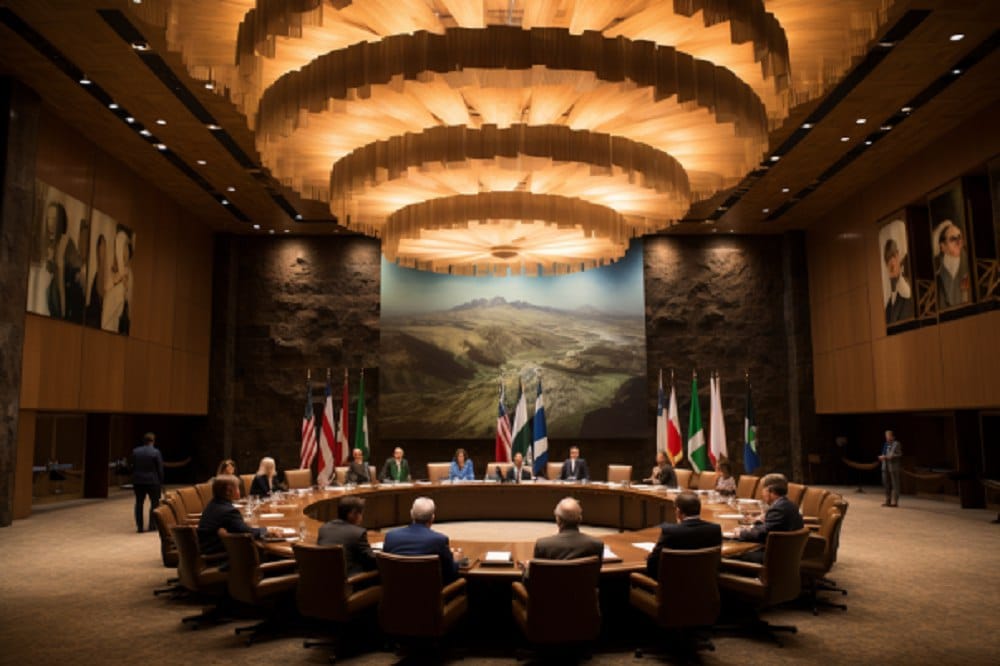Israel-Saudi Normalization Deal
Recently, the global stage has witnessed significant attention and speculation regarding the potential for a groundbreaking peace agreement between two prominent Middle Eastern nations, Israel and Saudi Arabia. This development has sparked numerous discussions and debates within the international political community.
Nevertheless, United States officials have stated that an official announcement of such an agreement is not on the immediate horizon. The intricacies of the situation are multifaceted, and the announcement of a complete normalization deal between these two nations isn’t happening soon.
No Immediate Announcement Expected
US National Security Advisor Jake Sullivan addressed these speculations after several high-level talks. In his remarks, Sullivan said, “We don’t expect any immediate announcement.”
Those who were part of the talks included US Secretary of State Antony Blinken’s meetings with Israeli Prime Minister Benjamin Netanyahu and Palestinian Authority President Mahmoud Abbas. One crucial aspect of these conversations was the potential for an agreement involving Israel, Saudi Arabia, and the United States.
An agreement between all parties would foster normalization and offer gestures of support to the Palestinians. Sullivan highlighted the significance of these discussions, describing them as “an important moment for a check-in at a high level.”
He noted that Secretary Blinken’s close relationships with Netanyahu and Abbas played a central role in the efforts to explore broader normalization possibilities. However, it’s vital to understand that these calls were far from routine or run-of-the-mill.
As Sullivan emphasized, they do not suggest an imminent breakthrough in the normalization process. Achieving this goal is challenging; any progress would require careful negotiation and diplomacy.
Navigating Complex Relations
In parallel with these diplomatic endeavors, a delegation of senior US officials embarked on a trip to Saudi Arabia. The team consisted of Deputy Assistant to President Brett McGurk, White House Coordinator for the Middle East Barbara Leaf, and Special Envoy Tim Lenderking.
Sullivan pointed out that Yemen has experienced its most prolonged period of peace in years, partly due to US diplomacy. The goal is to deepen this harmony, ultimately working towards lasting peace in Yemen.
Nonetheless, the topic of an Israel-Saudi Arabia normalization deal will not be ignored during their visit. Furthermore, the delegation intends to meet with a Palestinian delegation to discuss various Israeli-Palestinian issues.
This multi-pronged approach underscores the complexities of the issues affecting the Middle East and the necessity of addressing them simultaneously. The diplomatic move extends beyond Saudi Arabia, with McGurk planning to visit Bahrain to meet with Crown Prince Salman bin Hamad Al Khalifa.
Meanwhile, Israel’s Foreign Minister Eli Cohen recently met with Prince Al Khalifa in Bahrain, marking a significant development in regional relations. This visit aligns with ongoing diplomatic efforts in the region.
Looking ahead, Barbara Leaf’s upcoming visit to Israel underscores the United States’ commitment to active engagement in the region and its role in mediating between different stakeholders. Yemen remains a focal point of US efforts.
Still, discussions on broader regional dynamics are crucial to achieving success with these diplomatic talks.

